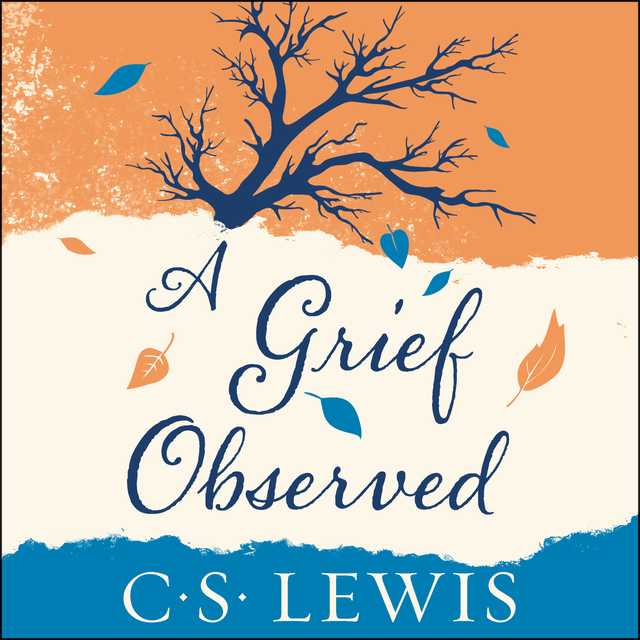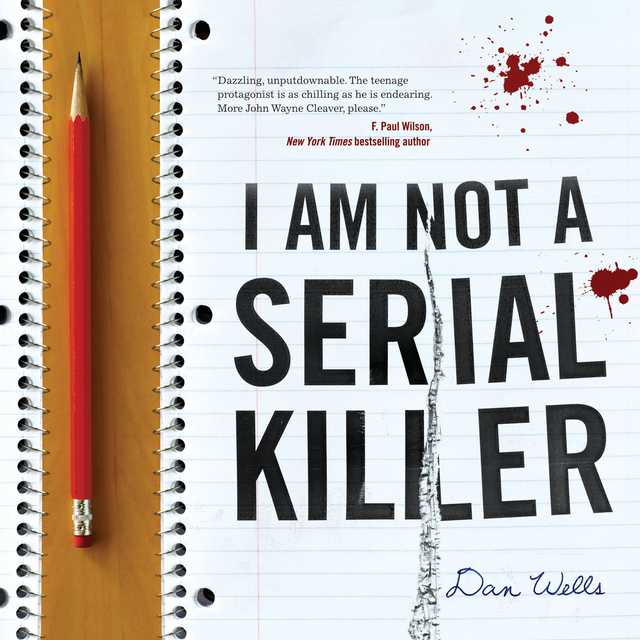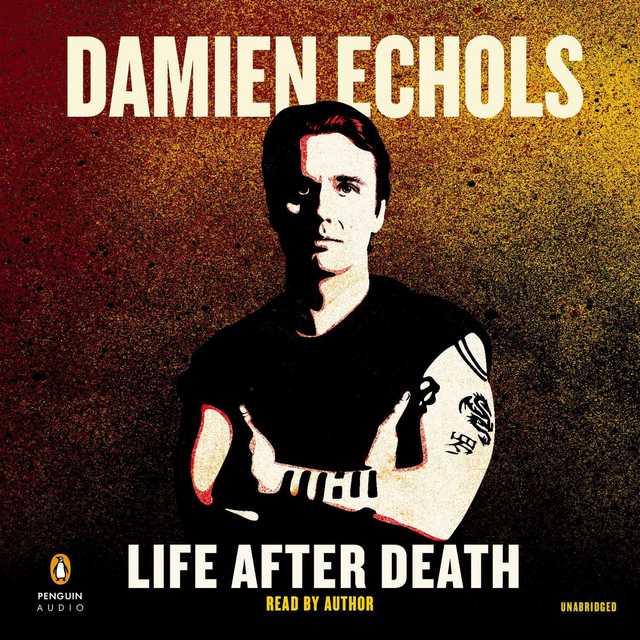A Grief Observed Audiobook Summary
A classic work on grief, A Grief Observed is C.S. Lewis’s honest reflection on the fundamental issues of life, death, and faith in the midst of loss. Written after his wife’s tragic death as a way of surviving the “mad midnight moments,” A Grief Observed an unflinchingly truthful account of how loss can lead even a stalwart believer to lose all sense of meaning in the universe, and the inspirational tale of how he can possibly regain his bearings.
Other Top Audiobooks
A Grief Observed Audiobook Narrator
Douglas Gresham is the narrator of A Grief Observed audiobook that was written by C. S. Lewis
Clive Staples Lewis (1898-1963) was one of the intellectual giants of the twentieth century and arguably one of the most influential writers of his day. He was a Fellow and Tutor in English Literature at Oxford University until 1954, when he was unanimously elected to the Chair of Medieval and Renaissance Literature at Cambridge University, a position he held until his retirement. He wrote more than thirty books, allowing him to reach a vast audience, and his works continue to attract thousands of new readers every year. His most distinguished and popular accomplishments include Out of the Silent Planet, The Great Divorce, The Screwtape Letters, and the universally acknowledged classics The Chronicles of Narnia. To date, the Narnia books have sold over 100 million copies and have been transformed into three major motion pictures.
Clive Staples Lewis (1898-1963) fue uno de los intelectuales más importantes del siglo veinte y podría decirse que fue el escritor cristiano más influyente de su tiempo. Fue profesor particular de literatura inglesa y miembro de la junta de gobierno en la Universidad Oxford hasta 1954, cuando fue nombrado profesor de literatura medieval y renacentista en la Universidad Cambridge, cargo que desempeñó hasta que se jubiló. Sus contribuciones a la crítica literaria, literatura infantil, literatura fantástica y teología popular le trajeron fama y aclamación a nivel internacional. C. S. Lewis escribió más de treinta libros, lo cual le permitió alcanzar una enorme audiencia, y sus obras aún atraen a miles de nuevos lectores cada año. Sus más distinguidas y populares obras incluyen Las Crónicas de Narnia, Los Cuatro Amores, Cartas del Diablo a Su Sobrino y Mero Cristianismo.
About the Author(s) of A Grief Observed
C. S. Lewis is the author of A Grief Observed
More From the Same
- Author : C. S. Lewis
- Letters
- C. S. Lewis
- Some Everyday Thoughts
- The Screwtape Letters
- George MacDonald
- Publisher : HarperAudio
- Abraham
- American Gods [TV Tie-In]
- Dead Ringer
- House of Sand and Fog
- Prey
A Grief Observed Full Details
| Narrator | Douglas Gresham |
| Length | 1 hours 53 minutes |
| Author | C. S. Lewis |
| Category | |
| Publisher | HarperAudio |
| Release date | May 13, 2014 |
| ISBN | 9780062342706 |
Subjects
The publisher of the A Grief Observed is HarperAudio. includes the following subjects: The BISAC Subject Code is Death, Grief, Bereavement, Self-Help
Additional info
The publisher of the A Grief Observed is HarperAudio. The imprint is HarperAudio. It is supplied by HarperAudio. The ISBN-13 is 9780062342706.
Global Availability
This book is only available in the United States.
Goodreads Reviews
Ahmad
April 17, 2022
A Grief Observed, C.S. Lewis A Grief Observed is a collection of C. S. Lewis's reflections on the experience of bereavement following the death of his wife, Joy Davidman, in 1960. The book was first published in 1961 under the pseudonym N.W. Clerk, as Lewis wished to avoid identification as the author. Though republished in 1963, after his death, under his own name, the text still refers to his wife as “H” (her first name, which she rarely used, was Helen). A Grief Observed explores the processes undergone by the human brain and mind over the course of grieving. The book questions the nature of grief and whether or not returning to normality afterward is even possible within the realm of human existence on earth. Based on a personal journal that he kept, Lewis refers to his wife as "H" throughout the series of reflections, and he reveals that she had died from cancer only three years after their marriage.تاریخ نخستین خوانش: روز دوم ماه فوریه سال2016میلادیعنوان: روایت یک غم؛ نویسنده: سی.اس لوئیس؛ مترجم: نادرفرد؛ انتشارات ایلام، 2008؛ در80ص؛ شابک9781906256258؛ موضوع داستانهای نویسندگان بریتانیا - سده ی20مداستان «لوئیس (سی.اس لوئیس نویسنده ی هفت کتاب ماجراهای نارنیا)» و «جوی دیویدمن گرشام (نویسنده و شاعر همسر لوئیس)» است، «لوئیس» میکوشند تا با چالشهای فلج کننده ی دردناکترین تجربه ی زندگی خویش درآویزند، و بر آنها چیره شوند؛ «روایتِ یک غم» تنها شریک شدن با غم و درد «لوئیس»، برای از دست دادن همسر نویسنده اش نیست، بلکه به معنای سهیم شدن در درک ایشان از محبت، و بهره بردن از غنای آن دوست داشتن است؛ شیواترین و راستترین واژه ها برای پاسخ به مشکل رنج بردن است، و شرح دردناکی از شجاعت مردی است که با رنج از دست دادن همسر خویش، که سه سال پس از ازدواجشان رخ داد، همچنان به نوشتن یادمانهای خویش ادامه میدهندنقل نمونه متن: (هیچ کس به من نگفته بود، که غم و اندوه همچون ترس است؛ من هراسان نیستم، اما احساسی دارم چون ترس، لرزیدن دل، بیقراری، و خمیازه کشیدن؛ هنوز هم در حال هضم کردن موضوع هستم؛ گاه احساس میکنم، قدری مست و مدهوشم؛ و یا ضربتی بر مغزم فرود آمده؛ بین من و دنیا، پرده ای افتاده است؛ پذیرفتن آنچه دیگران میگویند، برایم دشوار است، شاید هم تمایل به پذیرفتن آن، برایم دشوار باشد؛ هیچ چیز برایم جالب نیست؛ ولی همچنان، میخواهم دیگران دور و برم باشند؛ لحظه های تنهایی در خانه برایم وحشتناک است؛ فقط چه خوب میشد، اگر کاری با من نداشتند، و با هم صحبت میکردند)؛ پایان نقلاین تکه که از کتاب غمنامه برگزیدم حال و روز این روزهای این فراموشکار نیز هست، البته که «لوئیس» را همچون دیگران با سری «نارنیا»ی ایشان شناخته ام نه با این غمنامه که خواندنی است؛تاریخ بهنگام رسانی 29/03/1399هجری خورشیدی؛ 28/01/1401هجری خورشیدی؛ ا. شربیانی
Donald
August 25, 2013
After my wife passed away from cancer and I was in the depths of grief, well meaning friends kept bringing me what I call "victory books." These are books about dealing with the death of a loved one that basically said, "If you were a victorious Christian you would get over this." I wanted to throw those books in the pond behind my house. I hurt bad and I didn't want to get over it! I loved her for 20 years and to just "get over it" was to count her as unimportant in my life. Somehow, and I don't remember how, I came across C.S. Lewis' book A Grief Observed. As I read the first page the tears began to flow and I began my healing as I read the author's experience after losing his wife to cancer. I realized that I wasn't losing my mind because my thoughts were just like his. I have given this book to many people that are in the midst of grieving over the loss of someone, especially spouses. It is one of the most important books I have ever read because it met me at my point of need.
Elyse
August 06, 2021
Audiobook -- (free with Audible membership) ... Read by Ralph Cosham 1 hour and 50 minutes Listening to this book was a reflective experience. I can't imagine anyone not being able to relate to 'something' .....given it deals with primal humanexperiences: life - death- faith - grief - loss - love ...> and expands on all these things -(God, fear, anger. shock, suffering, doubts, memories, love) >> Its comforting and compelling.C.S. Lewis started by saying...."No one ever told me grief felt like fear".....My immediate thought was "No one ever told 'me' grief was so physical".Lewis didn't talk about the physical pain of grief - but.... he opens up about the shock of stress -- doubts with God -- love -- loss -- (the big loss --His wife) -- Sometimes when I was listening to this audiobook -- (while in our pool) -- I couldn't help but drift into thoughts of MY BIG LOVE -- (my husband) >>> one of us will die and leave the other one.I took in something Lewis said: "the stronger our LOVE is, the easier it will be facing grief". It will still be hard -- (I can't imagine -and don't want to imagine 'this' specific grief) -- but I do understand - that when love is whole/complete/ clean/ healthy-GRAND --not filled with resentments, regrets, or bitterness -- it 'must' make the death-grieving process a little more bearable. (I'm thinking because the gratefulness of all the wonderful years spent together) ...As I say --this was a reflective-listen for me. Lewis loss the love of his life - his wife. He journaled as to not spread his grief and anger to anyone else in his family or his friends. I don't journal -but I do a phone-therapy call --[once a month] -- with a woman/therapist --I like her! ..its kinda my journaling-therapy. I've been doing this the since the early days of the pandemic. I don't feel its critical that I do these therapy calls --but...its my way of being responsible in 'not' distorting anger and grief onto my friends and family, (too) -in the same way and reasons Lewis journaled. My grief is not THE BIG loss --not a spouse -- (thank GOD!!!) -- but I'm 'semi' estranged from our older daughter.We have minimal-occasional contact: (text or email) >> but I have not 'talked' with her or 'seen' her in a couple of years --with no plans to do so in the near future.So... the grief comes and goes. (thankfully--its not a physical pain any longer and its not a daily shock any longer- and its not fear driven) ....however -- ANY book --that shows Great empathy for grief -loss -suffering - is a a valuable book!! (Laysee's review had me see this) >> Thank you, Laysee! Beautiful man - beautiful wife -- loved learning a little about their individual uniqueness and talents. Thank you to Laysee, for putting this book in front of my eyes. I'm glad I listened to it.
Kim
October 20, 2010
Reading this book has resulted in an unknown number of panic attacks. I think that this should be one of the book jacket reviews. How can 73 beautifully deckled pages cause such angst? Words, words, words. I have a confession. I had to read this twice… the first time through I was a bit inebriated. Okay, more than a bit. I felt that I needed a little push to get me over that cliff… It’s almost like the more time passes the more hesitant I am to revisit the grief. Not that those scabs aren’t healed but that I’ll just fall again, maybe this time it will be worse. So, I read. And, I didn’t remember… but upon the second reading---and here is another confession--- I mucked the book up. I took one of those fine point pens and underlined and bracketed and exclamation pointed all through it. I haven’t done that in 20 years. So, back to the second reading… this felt like I was reading someone else’s thoughts on Lewis’s thoughts. It was a bit… off-putting. I must have gleamed something from that first run through because I realized that I stole one of his theories. I was talking to a friend and I mentioned how I felt like I was a house of cards. I thought, how brilliant is that? A house of cards, like the Brady Kids built for those green stamps. This is my life. It can be so intricate, so amazing to an outsider (‘Look at her! Look at how well she is doing!’) but it only takes one bump, one Tiger chase and it all comes crashing down. I am so freaking poetic. ”Is this last note a sign that I’m incurable, that when reality smashed my dream to bits, I mope and snarl while the first shock lasts, and then patiently, idiotically, start putting it together again? And so always? However often the house of cards fall, shall I set about rebuilding it? Is that what I’m doing now?”Yep. It’s been 10 months. Really! Only 10 months. Seems like eons ago, right? For some of you Golden Agers, you know what I mean. It’s not like he wasn’t a presence when he was around… drama, Rush, drama, Religion, Rush, drama. ”No one ever told me that grief felt so like fear. I am not afraid, but the sensation is like being afraid. The same fluttering in the stomach, the same restlessness, the yawning. I keep on swallowing.”Stop me if you’ve heard this one before. A Grief Observed is like my pocket bible. When I’m out in the real world, where life goes on, I can run my fingers across the deckle pages and remember I need to breathe. That someone else knows what it’s like. Even if it was 50 years ago. If I had read this before Maurice died it would have been different. I had experienced parental deaths… before so it’s not that element of just ‘death.’ It’s the loss of that shared life. It’s feeling cosmically ripped off. ‘Thy Will be Done.’ Lewis talks about this.. he talks a lot about religion and how people interpret death and how their feelings are sort of pushed (lovingly, of course) on you. But what more of a ‘fuck you’ is that phrase? Thy will be done? Whose will? Done? Who says? Yeah. Lewis is chock full of bitterness and so am I. ”At work, at the club, in the street, I see people, as they approach me, trying to make up their minds whether they’ll ‘say something about it’ or not. I hate it if they do, and if they don’t…..Perhaps the bereaved aught to be isolated in special settlements like lepers.” Yes, this is all about us. Didn’t you know? Didn’t you realize that as you’re talking to us about the weather or about something your kid did or about work we’re constantly thinking about what we’ve been cheated out of? It’s true. It’s selfish and pitiful and absolutely, no doubt about it, true. Think about that next time you talk to someone who has lost their partner. But, never show that you are. Because we will see and we will fester and then you’ll have to read drawn out book reviews about it. Lewis struggles with his faith. I find this interesting. It's like rubbernecking... I, myself, have questioning faith. Convenient faith? I like to think that his death is for the better… that he’s in less pain now… that we have less of a struggle now. But what do I really know? Lewis says the same thing… who’s to say that their ‘existence’ is any better now? They were in pain during life--Do they suddenly become gentler to us the moment we are out of the body? And if so, why?" So, lots of questions… Then there’s the whole ‘Will I ever see him again?’ Do I believe in that? He’s dead. Six feet under (proverbially). Pushing up daisies, kicked the bucket, shuffled off the mortal coil, bought the farm, sleeping with the fishes, gave up the ghost, danced the last dance, became living challenged. Is there an after life? I find myself comforted with thinking that I’m going to see him again. And then I curse myself out and reason and rationality seeps in and I realize he’s a box of dirt stashed away at the funeral home. Finis. I guess this is my own struggle with faith. Not that I really had any to begin with but after the fact, I’m conveniently trying to grasp on to the wagon… I guess, unlike Lewis, I wasn’t ‘let down’… I wasn’t duped. But, it was interesting to read his rants---the passion and the aching and the illuminations. Some times I had that ‘I told you so’ feeling. Some times, I hung my head in shame. Does grief finally subside into boredom tinged by faint nausea?”Lewis does have some epiphanies. And for this, I can only give him 4 stars. (I’m biased like that) Maybe I don’t have the intellect to ‘see’ as he does. Maybe I haven’t fully come to terms with it and can persuade myself that ‘in time’ I will accept. ” And suddenly at the very moment when, so far, I mourned H. least, I remembered her best. Indeed it was something (almost) better than memory; an instantaneous, unanswerable impression…. It was as if the lifting of the sorrow removed a barrier.” This hasn’t come to me yet. Each memory is still jarring. Each time I see a photo, I am still stunned. ”The remembered voice---that can turn me at any moment to a whimpering child.” That’s still there and I own it. Reading about his enlightened moments just made me feel lonelier and more confused. ”And all this time I may, once more, be building with cards. And if I am He will once more knock the building flat. He will knock it down as often as proves necessary. Unless I have to be finally given up as hopeless, and left building pasteboard palaces in Hell forever; ‘free among the dead.’”I like that image… ‘pasteboard palaces in Hell forever’… it doesn’t feel hopeless. It feels like someone gets it. Carry on.
Jon
March 15, 2018
A beautiful book on loss...what we must search for in our heart when someone we love dies. I must confess that this book brought a mixture of hope and dread to me - I will ponder the questions C.S. Lewis addresses for the rest of my life.
Maria
January 11, 2018
Hacía tiempo que quería leer este libro y realmente me alegro de haberlo hecho. Un libro, sea dicho de paso, que se lee en una hora. A simple vista, podríamos decir que el argumento de la historia es muy sencillo: el duelo por la muerte de un ser querido y la fe en Dios. Pero en sus páginas nos encontramos con muchas preguntas, a las que cuesta encontrar una respuesta.
Mia
February 22, 2013
I read this book for the first time something like four years ago. Me, like everyone else who had gone through the loss of a beloved, will surely recognize the same emotions that Lewis describes.It's not easy to give a rational review of this book. It's something like a mirror, reading those words makes you feel like Lewis had been looking into your heart when he wrote them.But this is not only a portrait of loss. It would be reductive to say that he only speaks about his pain. First of all, the main theme is love. May I say it's about Love.It's because that love existed that it could be "lost".It's moving the way he talks about his wife and I don't think there will ever be a woman who wouldn't want that kind of love. Friendship, complicity, loyalty, honesty, protection, this and much more was what formed their relationship.Lewis talks about his two major loves: God and his wife.He asks "the" question everybody who have been in pain had at least once asked God: why? And he does get angry. He does get sad, he does scream through ink on paper. He screams about his suffering and ours.But yet, this is not a book about pain. There is fear. There is hope. It's not bitter, it's bittersweet, since through screams he understands that a goodbye is not forever, through anger he understands that nothing is really over. That she is not really over, she is not really dead till he has got that everlasting hope to rejoin.The book comes near the end with an appointment: she'll be there when it'll be his time. It's quite funny the way she says that neither Heaven or Hell could stop her. And then the book ends leaving you with a little sad smile, a bittersweet emotion which is a mixture of hope, fear, sadness and courage.This book helped me a lot in my darkest days. We know he used to say that you become friend with someone saying "you too". That's why I think about him like a friend, a mentor, a man who wasn't just an intellectual but also a man who was able to touch the human heart in its most wounded spots without falling in mere complaining.I suggest this book to anyone who have suffered the same even if sometimes it takes bravery to look in the mirror of your wounds. But, I can promise you, once you do you find yourself a new friend and new hopes.
☆LaurA☆
February 05, 2023
☆☆☆☆,5Avrei voluto avere tra le mani questo libricino 10 anni fa. Sono già passati 10 anni? Cazzo papà come vola il tempo.Non sono mai stata credente, o almeno non credo nella chiesa come istituzione, ma VOGLIO credere che, una volta morta, almeno la mia anima resti da qualche parte, magari a tirare le gambe di qualcuno.È razionale credere in un Dio cattivo? O comunque, in un Dio tanto cattivo? Il Sadico Cosmico, l’idiota malevolo?Il Dio che ha dato il cancro a 3 membri su 3 della mia famiglia? Queste sono prove? Ho sempre detto a mia mamma che probabilmente, nella vita precedente, abbiamo mangiato bambini perché se no non me lo spiego.Dov'è Dio quando ne abbiamo bisogno? Lewis riesce a dare voce al dolore. Riesce ad esprimere le sensazioni che tanti di noi, perdendo qualcuno che abbiamo amato, hanno provato.Scrivere per esorcizzare, leggere per fare altrettanto. Amen
Dennis
May 26, 2014
Favorite Quotes:"I once read the sentence 'I lay awake all night with a toothache, thinking about the toothache an about lying awake.' That's true to life. Part of every misery is, so to speak, the misery's shadow or reflection: the fact that you don't merely suffer but have to keep on thinking about the fact that you suffer. I not only live each endless day in grief, but live each day thinking about living each day in grief.""I see people, as they approach me, trying to make up their minds whether they'll 'say something about it' or not. I hate if they do, and if they don't.""Aren't all these notes the senseless writings of a man who won't accept the fact that there is noting we can do with suffering except to suffer it?""We were even told, 'Blessed are they that mourn,' and I accept it. I've got nothing that I hadn't bargained for. Of curse it is different when the thing happens to oneself, not to others, and in reality, not imagination.""I thought I trusted the rope until it mattered to me whether it would bear me. Not it matters and I find I didn't."
Michelle
November 06, 2022
I hadn't heard about this book until recently but that's becoming a theme. Once you are bereaved you see grief everywhere. As were most I was brought up on the Chronicles of Narnia, I didn't realise at the time how religion wove itself within those novels however it seems when Lewis lost his wife that belief began to wane. He questioned it, analysed it, played with it. This is Lewis's journal observing his grief for his wife and while everyone's grief is unique to them, there's always stands you can pull out that relate to you and I definitely found strands of my own grief for my sister in these pages. I'm glad I read this little book, for someone else's grief experience and also some background on a author who featured a lot in my childhood. I'm not here to rate anyone's grief, it's a five star from me.
piperitapitta
January 26, 2018
ShadowlandsLeggendo Quel che resta del giorno mi sono improvvisamente ricordata, per associazione di idee (vuoi perché il protagonista è sempre Anthony Hopkins, e vuoi perché sono due film, entrambi ambientati in Inghilterra, che ho visto nello stesso periodo al piccolo cinema teatro Arcobaleno su Via Nomentana) di Viaggio in Inghilterra di Richard Attenborough.Ricordavo gli attori, il già citato Hopkins e la sempre bella Debra Winger (attrice da me tanto amata in gioventù); ma non la trama, che ho appena riletto su Wikipedia, scoprendo che narra la storia d'amore di C.S. Lewis, lo scrittore autore del famoso Le cronache di Narnia con l'americana Joy Gresham.Ma è anche l'autore di Diario di un dolore, che traccia il percorso doloroso e l'elaborazione del lutto che segue alla scomparsa, qualche tempo dopo, della donna amata.Ecco, credo che certi cerchi, che si aprono nella vita a nostra insaputa, finiscano sempre poi per chiudersi quando meno ce lo aspettiamo: magari anche in un giorno di festa quando, seduta in poltrona con il Kindle in una mano e l'iPhone nell'altra, ti ricordi all'improvviso di cercare notizie su di un film che avevi visto ventiquattro anni prima e che narrava la storia di un amore grande, senza sapere, poi, che di quell'amore avresti letto l'epilogo nelle toccanti parole di Lewis molti anni dopo, né che quelle parole, dono di un'amica cara, ti avrebbero donato sollievo, e spinta, per raccontare ed elaborare il tuo dolore, anch'esso senza fine.Come Lewis, e grazie a Lewis, in un'epoca moderna, in questi ultimi (quasi) due anni, anche io ho punteggiato la mia esistenza di appunti, di foto, di ricordi, di note nel telefonino e di post per non dimenticare, per far sì che ogni ricordo tornasse a vivere, che ogni parola non fosse dimenticata, che ogni momento potesse scandire, in me, la cronaca di un dolore che non finirà mai, ma che impara a con-vivere giorno dopo giorno. E, anche questo, in altro modo, è amore.25 gennaio 2018Tutto questo, scritto un paio di mesi fa, torna prepotentemente a essere presente oggi, in questi giorni, non senza dolore, ma con rinnovato dolore, rapita da tanta bellezza e lucidità, leggendo L'anno del pensiero magico di Joan Didion.
Timothy
May 10, 2020
No one ever told me that grief felt so like fear. I am not afraid, but the sensation is like being afraid. The same fluttering in the stomach, the same restlessness, the yawning. I keep on swallowing. At other times it feels like being mildly drunk, or concussed. There is a sort of invisible blanket between the world and me. I find it hard to take in what anyone says. Or perhaps, hard to want to take it in. It is so uninteresting. Yet I want the others to be about me. I dread the moments when the house is empty. If only they would talk to one another and not to me. In my nearly 30 years of existence I have yet to experience any great loss. But I know one day it will come and one day I will cope. I have, however, experienced depression, and Lewis’ explanation of grief succinctly covers certain aspects of the illness: the apathy and the ennui that eats you alive. You don’t care, and yet you care too much. It becomes a pit of tar that’s inescapable, but the thought of escaping is terrifying because that would result in change. And change is hard to face when you can’t even bring yourself to brush your teeth. Depression is much more than sadness, but sadness plays its part. I’m much better than I was in my younger years, but Lewis brought back some feelings that were once hard to acknowledge. You don’t realize how bad it is until you’re out of it. To make an organism which is also a spirit; to make that terrible oxymoron, a ‘spiritual animal.’ To take a poor primate, a beast with nerve-endings all over it, a creature with a stomach that wants to be filled, a breeding animal that wants its mate, and say, ‘Now get on with it. Become a god.’
Most Popular Audiobooks
Frequently asked questions
Listening to audiobooks not only easy, it is also very convenient. You can listen to audiobooks on almost every device. From your laptop to your smart phone or even a smart speaker like Apple HomePod or even Alexa. Here’s how you can get started listening to audiobooks.
- 1. Download your favorite audiobook app such as Speechify.
- 2. Sign up for an account.
- 3. Browse the library for the best audiobooks and select the first one for free
- 4. Download the audiobook file to your device
- 5. Open the Speechify audiobook app and select the audiobook you want to listen to.
- 6. Adjust the playback speed and other settings to your preference.
- 7. Press play and enjoy!
While you can listen to the bestsellers on almost any device, and preferences may vary, generally smart phones are offer the most convenience factor. You could be working out, grocery shopping, or even watching your dog in the dog park on a Saturday morning.
However, most audiobook apps work across multiple devices so you can pick up that riveting new Stephen King book you started at the dog park, back on your laptop when you get back home.
Speechify is one of the best apps for audiobooks. The pricing structure is the most competitive in the market and the app is easy to use. It features the best sellers and award winning authors. Listen to your favorite books or discover new ones and listen to real voice actors read to you. Getting started is easy, the first book is free.
Research showcasing the brain health benefits of reading on a regular basis is wide-ranging and undeniable. However, research comparing the benefits of reading vs listening is much more sparse. According to professor of psychology and author Dr. Kristen Willeumier, though, there is good reason to believe that the reading experience provided by audiobooks offers many of the same brain benefits as reading a physical book.
Audiobooks are recordings of books that are read aloud by a professional voice actor. The recordings are typically available for purchase and download in digital formats such as MP3, WMA, or AAC. They can also be streamed from online services like Speechify, Audible, AppleBooks, or Spotify.
You simply download the app onto your smart phone, create your account, and in Speechify, you can choose your first book, from our vast library of best-sellers and classics, to read for free.
Audiobooks, like real books can add up over time. Here’s where you can listen to audiobooks for free. Speechify let’s you read your first best seller for free. Apart from that, we have a vast selection of free audiobooks that you can enjoy. Get the same rich experience no matter if the book was free or not.
It depends. Yes, there are free audiobooks and paid audiobooks. Speechify offers a blend of both!
It varies. The easiest way depends on a few things. The app and service you use, which device, and platform. Speechify is the easiest way to listen to audiobooks. Downloading the app is quick. It is not a large app and does not eat up space on your iPhone or Android device.
Listening to audiobooks on your smart phone, with Speechify, is the easiest way to listen to audiobooks.






























